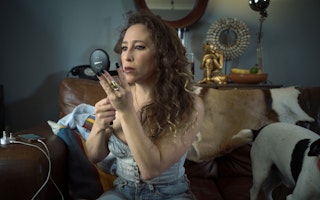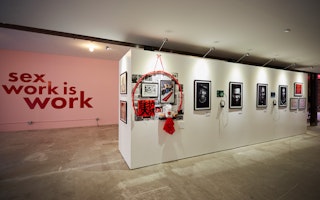Spotlight on Ann Njogu, CREAW: Taking a Stand Against Gender-Based Violence in Kenya
By Rachel Thomas
The following article originally appeared in the Spring 2006 Sexual Health and Rights Program (SHARP) Newsletter.
Early one evening in Nairobi, while waiting at a bus stop on her way home, Margaret was accosted, dragged behind a bush, and gang raped by 10 men until dawn. When they finally left her, she made her way 400 meters to a petrol station where she was given a sweater to replace her tattered clothing and some money to get home. Filled with shame and blaming herself, she could not face her parents. Her sister accompanied her to one of the largest hospitals in Kenya. When she was finally seen by the doctor after hours of waiting, he instructed her to use her own fingers to remove the semen from her body and place it on a glass slide for analysis, since he did not have gloves and did not wish to go looking for them.
For Margaret, such treatment was a clear reminder of her attackers and it felt like she was being violated all over again.
Ann Njogu, Executive Director of the Centre for Rights Education and Awareness (CREAW) in Nairobi, shared Margaret's story during a March 9, 2006, forum hosted by SHARP. CREAW is a nongovernmental organization created to enhance women's access to basic human rights through the elimination of all forms of discrimination and violence, and to promote equality and justice. In addition to providing legal aid for survivors of abuse, advocating for women's rights, and lobbying for progressive legislation around sexual abuse, domestic violence and affirmative action, CREAW's staff work on gender based violence prevention at the community level through education, mobilization, and awareness-raising campaigns.
According to Njogu, women have little to no control over their sexuality in Kenya. The gender based violence directed at women and girls includes intimate partner violence, sexual abuse, rape, widow inheritance, dowry related violence, and female genital mutilation (FGM). Every 30 minutes a woman is sexually violated, and approximately 53 percent of women have been subjected to sexual abuse. Hospital procedures like those Margaret encountered, force those violated to declare their claims loudly in public, and the frequent mismanagement of court cases further penalizes survivors, undermining rights and obstructing justice. Statistically, these barriers mean that only 14 percent of sexual abuse violations are reported and less than 1 percent of violators end up in custody.
Though Ann is quick to point out that Kenya has a rich history of positive traditions, she asserts there are also harmful ones that contribute to the entrenchment of gender based violence. She points to the bride price paid to women's families for the deep-rooted perceptions of women as property, compromising their position even before marriages begin. Bride price traditions persist because parents focus on practical needs, viewing daughters as a means of poverty alleviation and marrying them off early for immediate rewards instead of investing in their education and future potential.
The tradition of wife inheritance and the practice of "cleansing" a widow through sex—often forced—are also perpetuated. These issues are complicated by the fact that sexuality is almost never discussed in Kenyan society. CREAW's programs address these issues, involving key leaders and men from the communities in the discussions surrounding rights and rights violations. According to Njobu, ensuring broad community involvement is the only way to foster accountability and move toward real societal change.
Njogu says that CREAW gives communities the resources they need to end gender based violence and discrimination. If the people she works with tell 20 people what they have learned and each of them tell 20 more, the seeds they have planted will germinate, results will be achieved, and community paradigms will change.
Changes are already underway. CREAW's "Rape Red Spot" campaign identifies dangerous community zones that have been the sites of multiple assaults and raises awareness about these areas through billboards and media. Already, the initiative has led to a wider understanding of gender violence and galvanized the revitalization of risky locations, as stakeholders remove clutter, improve lighting, and increase surveillance. Margaret had no way of knowing that the place she was attached was a popular spot for rape. Through CREAW's efforts, now women do.
Until June 2014, Rachel Thomas was a program officer with the Sexual Health and Rights Project, part of the Open Society Public Health Program.


